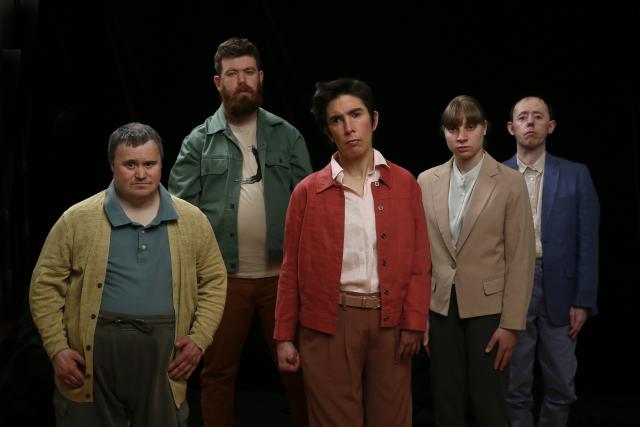A Geelong theatre group will have its work shown on the world stage next month, with its debut feature film to be shown at one of the largest international indie arts festivals.
Back to Back Theatre, known for its innovative and collaborative productions featuring with an ensemble of actors with disabilities, will be one of seven projects to screen at South by Southwest (SXSW) Festival in Austin, Texas on March 12.
The film, Shadow, is the theatre company’s first feature film and was directed by Bruce Gladwin, produced by Alice Fleming and co-written by the group’s core performing artists Michael Chan, Mark Deans, Sarah Mainwaring, Scott Price, Simon Laherty and Sonia Teuben, with Gladwin.
Filmed on location in and around Geelong in December 2020, Shadow builds on the success of Back to Back’s debut short film, Oddlands, creating a feature film that was provocative and challenging, and provided opportunities for people with disabilities both in front of the camera and behind the scenes.
A Back to Back Pictures production, Shadow is a darkly humorous 56-minute film based on Back to Back Theatre’s award-winning 2019 play The Shadow Whose Prey The Hunter Becomes.
The film was jointly funded by the federal government’s Department of Social Services, the City of Greater Geelong arts and culture department’s Arts Industry Commissions Program and supported by Screen Australia through the COVID-19 Budget Support Fund Program.
Shadow stars Back to Back’s professional ensemble, with Scott Price, Simon Laherty and Sarah Mainwaring in lead roles, playing a trio of disability activists who hold a public meeting, desperate to save the world. As the meeting unravels, they discover the greatest threat to their future is already in the room.
Price said Shadow was a “story that needs to be told”.
“It’s about artificial intelligence and disability activism,” he said.
“The fact that it is premiering at a festival such as SXSW shows that it is a beautiful piece of work, and the importance of telling stories from perspective of people with disabilities.”
Fleming said it was “extremely exciting” to see Back to Back transition onto the screen.
“Shadow’s world premiere status at SXSW is something we dreamed about, but didn’t imagine would be possible for our debut into feature filmmaking,” she said.
“It is strong evidence for more inclusive film-making and storytelling teams. We couldn’t be more thrilled.”
Gladwin said the film used dramatic and documentary-style elements to tell the story of a group of activists who “discover their own prejudices are their biggest obstacles to saving the world”.
“Thematically, we wanted to understand individual and collective responsibility and question how we come together to make decisions that are in the best interests of society,” he said.
“As artists we are seeking alternative models of story creation and screen production. Created over two and a half years through conversation and improvisation, the performers are also the co-authors, 95 per cent of the people on screen are people with disabilities, and the majority of the crew roles are fulfilled by interns who identify as people with disabilities supported by professional mentors.
“The narrative thematic and the film’s philosophical approach to the process of creation are intrinsically linked. This is community filmmaking.”









